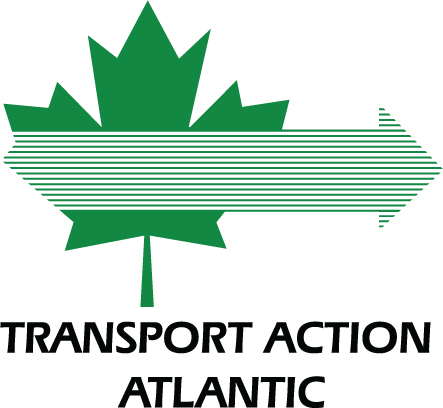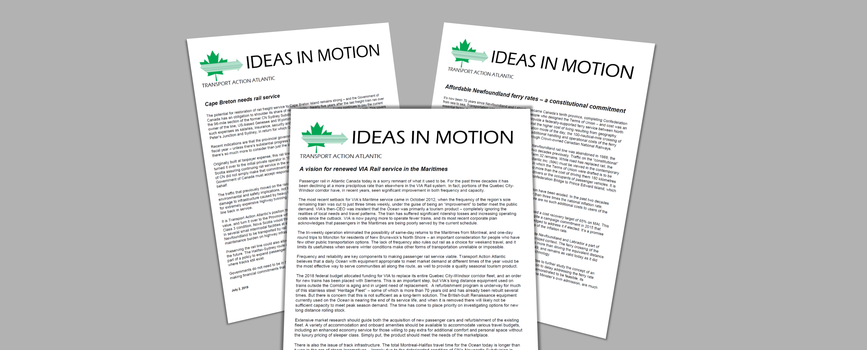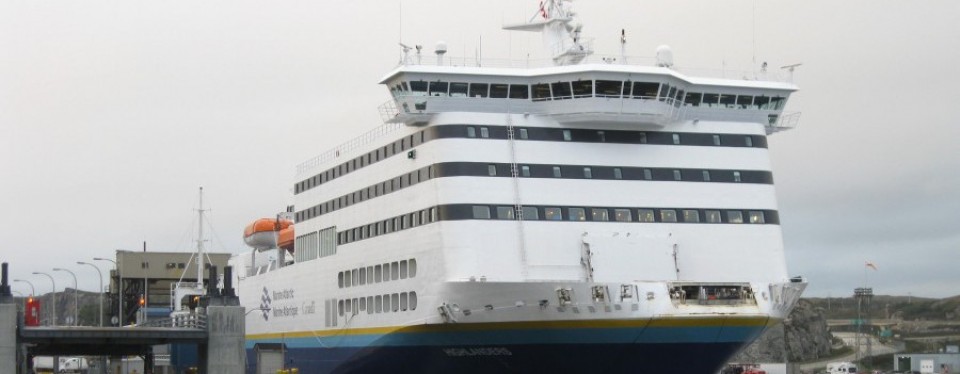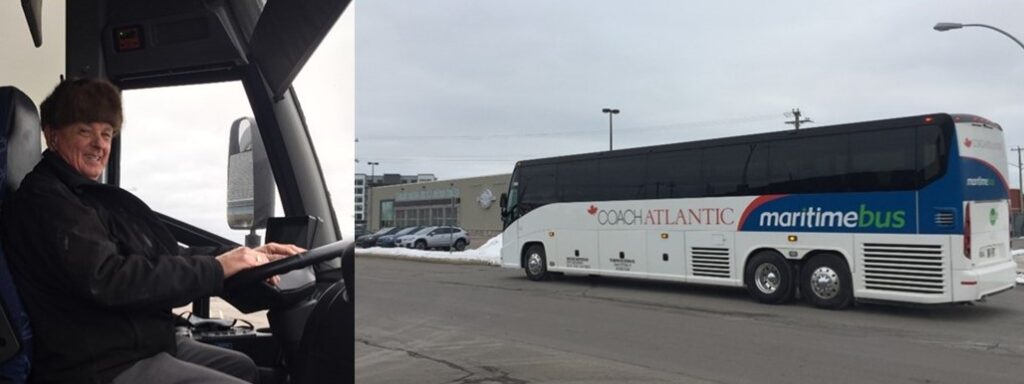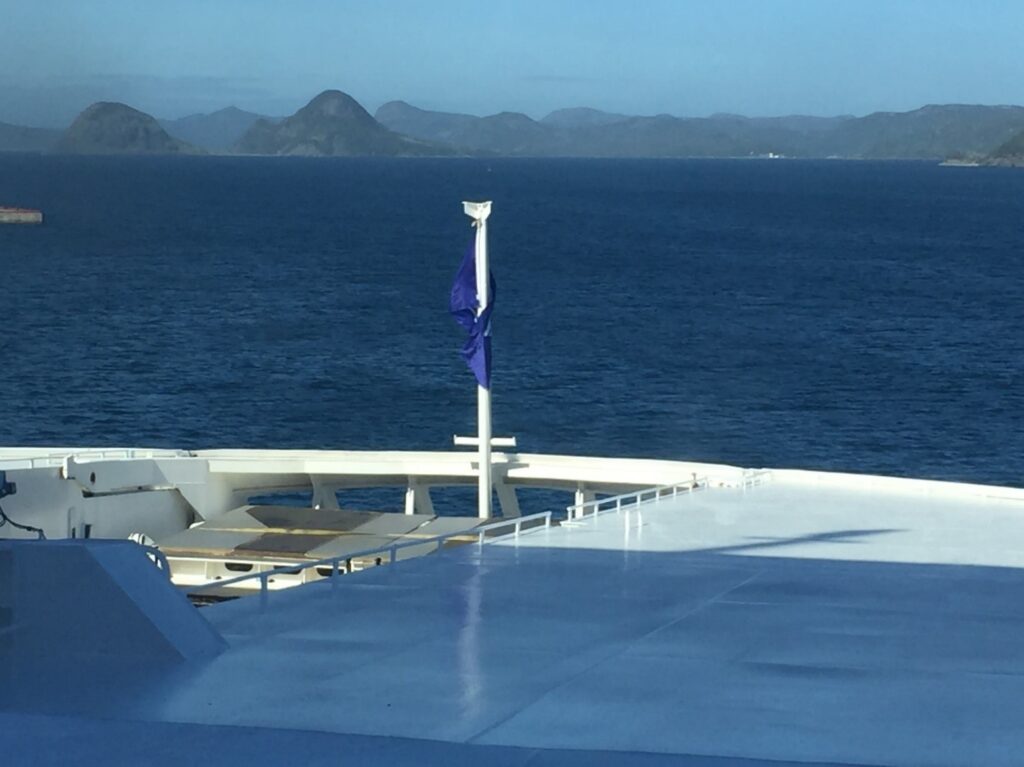Welcome to the March edition of Atlantic Transport News!
Here’s a look at what you’ll find in this edition:
- COVID’s latest wave brings more transportation cuts
- Greens call for new Maritimes transportation vision
- Atlantic Canada Airports Association loses its leader
- Two NL parties give position on ferry rates
- Yarmouth ferry secrets revealed
- Digby Ferry ending a two-month hiatus
- Campobello ferry extended once again
COVID’S LATEST WAVE BRINGS MORE TRANSPORTATION CUTS
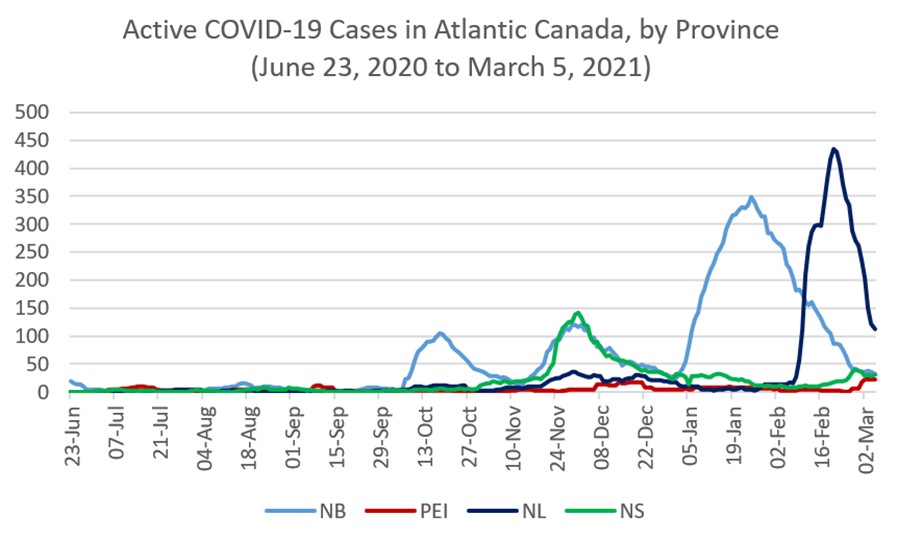
Contrary to the verse of T.S. Eliot, most Atlantic Canadians would agree that February is undoubtedly the cruelest month of the year. The point was certainly driven home in 2021 as another wave of the COVID-19 pandemic rolled with a vengeance into Newfoundland and Labrador – and to a lesser extent Nova Scotia and PEI. Only New Brunswick finished the month with a significantly improved active case count from the end of January – and that was mainly because their peak had come earlier in the new year. The sudden surge in cases in Newfoundland’s northeast Avalon region was particularly alarming, not only because it proved to be largely of the more virulent B117 variant, but it was also showing rapid spread among the teenage cohort. Public health authorities acted quickly, and initially placed the entire province under strict lockdown, though the restrictions were later relaxed outside the most affected area. Nova Scotia, meanwhile, put the last remnant of the Atlantic Bubble on hold by requiring all travellers arriving from NL by air or ferry to self-isolate for 14 days.
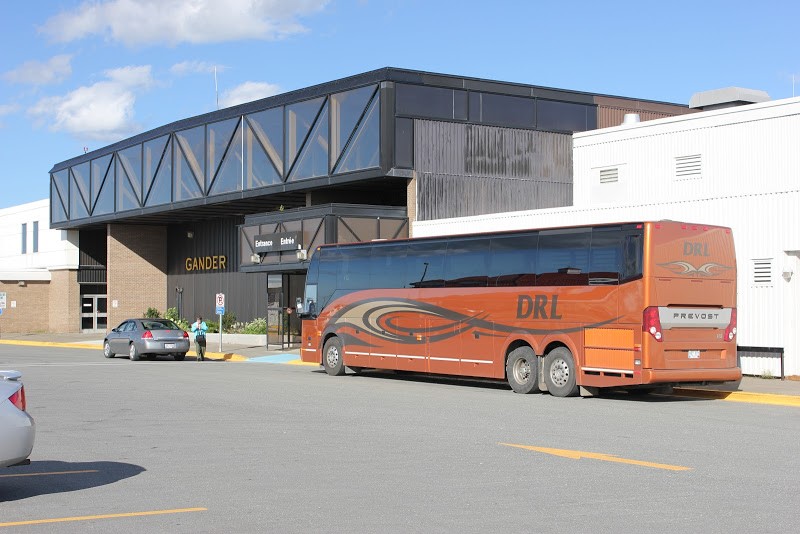
One casualty of the latest crisis in NL was the trans-island bus service operated by DRL Coachlines. On February 13 it suspended all service until further notice, temporarily laying off 28 employees. However, the company has just announced that its full schedule would resume on Monday, March 8, with strict health protocols in place including mandatory masking for the duration of the trip.
DRL had been operating at about 70 per cent of its normal ridership for the past year because of the pandemic, with the company taking a big financial hit, general manager Jason Roberts told CBC News. He said about 90% of the company’s ridership originated in or was destined for St. John’s, and ridership had all but evaporated under the latest lockdown. DRL has been bleeding cash since March of 2020, despite having shut down for several months last spring, and Mr. Roberts anticipates it will be another year before it’s again in a profitable position.
Air service in NL also took another hit, with WestJet announcing that the province was being dropped from its route map effective March 19 for at least three months. The airline had been operating a single Q400 return flight between St. John’s and Halifax on a less than daily frequency for several months. Airline CEO Ed Sims attributed the cancellation to plummeting demand because of travel restrictions and quarantines.
Meanwhile, PAL Airlines is now only operating once a week on its modified St. John’s-Deer Lake-Moncton-Wabush routing. Marketing director Janine Brown expects that this reduced offering will remain in effect until travel restrictions ease between provinces in the now-suspended Atlantic Bubble. Latest indications are that reopening the bubble is indeed on the premiers’ radar, and they will be discussing it next month with some optimism that it might be back by May. Meanwhile, PAL is maintaining a more frequent service between points within NL, flying with some regularity from St. John’s to Gander, Deer Lake, Goose Bay and St. Anthony.
GREENS CALL FOR NEW MARITIMES TRANSPORTATION VISION
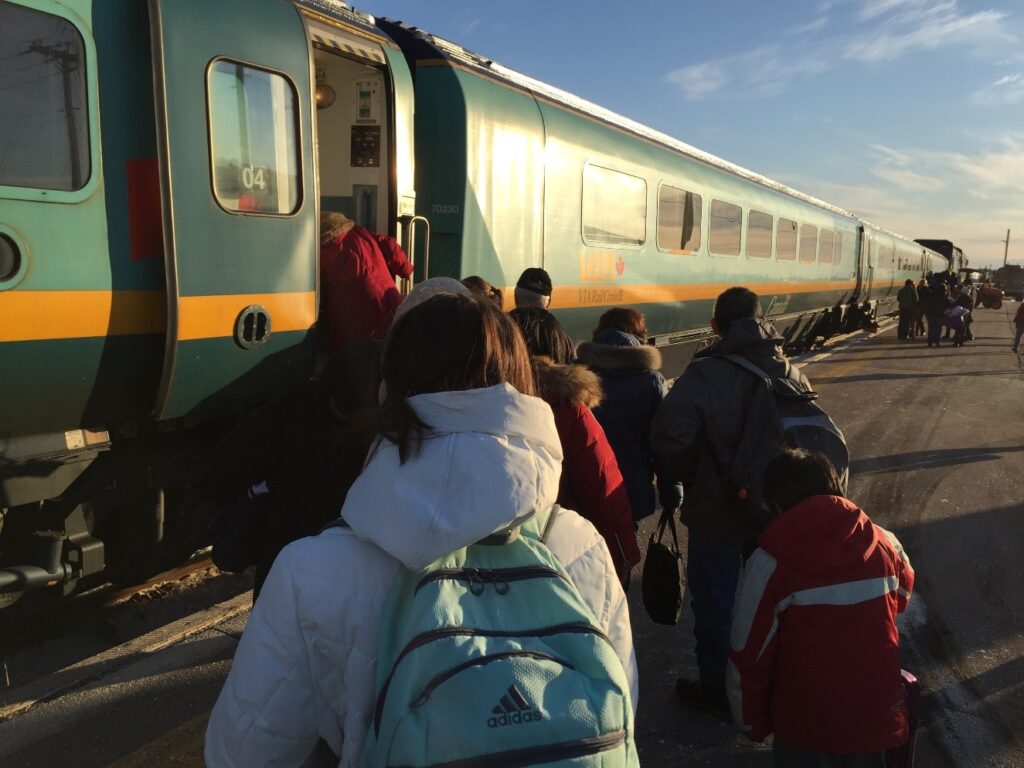
“With public transportation services in disarray, it’s as if there is no one in charge – which there isn’t,” says New Brunswick Green Party Leader David Coon. The remark was part of a call for unified action by the three provincial governments in the Maritimes. In documenting his case, Mr. Coon decries the absence of a strong policy role among transportation departments in general, suggesting they are far too focused on asphalt and concrete.
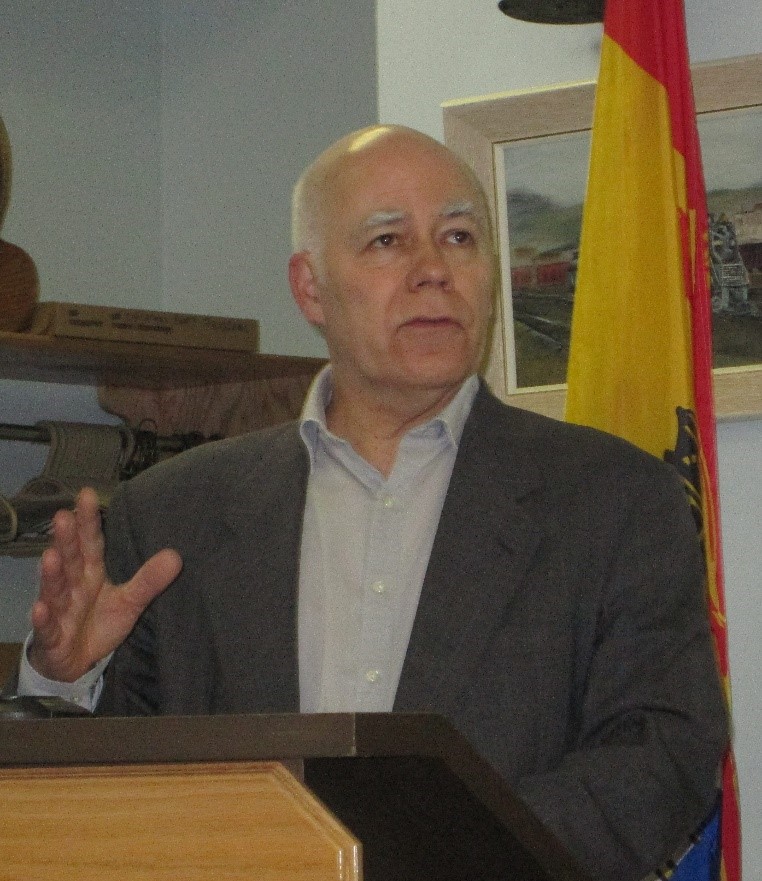
“To achieve our social, economic and environmental goals we must become more self-sufficient in public transportation. How do we build a public transportation network that meets our needs, and what revenue will fund the necessary public investments?” he writes.
“This is a job for a public institution that crosses provincial borders. I propose the creation of a Maritime Transportation Authority, a regional Crown corporation, that can quarterback the development of a public transportation network that enables us to travel where we need to go, when we need to go, throughout the Maritimes.
“I envision a seamless system of regional passenger rail, motor coach, and local transit services that are a mix of private, public and community enterprises.”
The full text of Mr. Coon’s statement can be found on TAA’s website:
ATLANTIC AIRPORTS ASSOCIATION LOSES ITS LEADER

The CEO of the Saint John Airport and chair of the Atlantic Canada Airports Association is leaving to take up a new challenge. Derrick Stanford advised the YSJ board of directors of his departure in February, effective March 10. He’d held the position since 2016.
Mr. Stanford hasn’t indicated where he’s going, but suggested it would be outside the aviation sector. Before coming to Saint John he’d been employed in the software industry.
The departing CEO did express confidence in the viability of Saint John’s airport, which currently is completely devoid of any scheduled passenger flights. He noted that discount carrier Flair Airlines recently announced that it is set to begin service to Toronto as early as May, depending on the travel restriction situation.
The flights would be twice weekly initially, priced from about $80 one way. Mr. Stanford called this a step in the right direction, and predicted that YSJ has a bright future, despite the lack of clarity about a return of Air Canada service. He says things are beginning to look up for the aviation sector generally, with COVID-19 case numbers beginning to decline globally. He added that YSJ is on a “stable footing”, and the airline industry is taxiing toward steadier ground.
“I won’t say the worst is behind us, but we’re on a course now for a slow, steady recovery,” he told CBC News.
The total revenue loss for 2020 among ACAA members is estimated to be $140 million. The airports have asked for federal government help to keep the lights on while they await the end of the pandemic.
TWO NL PARTIES GIVE POSITION ON MARINE ATLANTIC RATES
The NL provincial election scheduled for February 13 was thrown into chaos by the surge in COVID cases. All in-person voting was cancelled, and those who had not already availed of advance polls were required to apply for mail-in ballots. The deadline for those ballots to be received by the returning office in order to be counted was set at March 12, with some sources suggesting that deadline could be extended, and it might be well into April before the election outcome is known.
Transport Action Atlantic had initiated an effort to get Marine Atlantic ferry rates on the table as an election issue. Although the service is a federal responsibility, TAA maintains the matter will only be addressed if provincial politicians become more assertive. PC Leader Ches Crosbie has committed in writing to do just that.

“Marine Atlantic is the responsibility of the federal government. But that does not mean I cannot stand up and hold them accountable. The federal government should ensure that Marine Atlantic provides affordable and reliable service…it is their constitutional responsibility to do so.
“…Yes, I do support the principle that the cost to use the ferry service between Port aux Basques and North Sydney should be comparable to the cost incurred to travel a similar distance via road. Additionally, regardless of the election result, I will support a full review of the existing Marine Atlantic rates to ensure that the federal government is compliant with the Terms of Union.”
A response from the provincial Liberals seems to indicate that they are not prepared to antagonize their federal counterparts, and suggests that they do not consider the current rate structure unreasonable:
“Through ongoing meetings and consultations as well as an ongoing open dialogue with the Government of Canada, we continue to make the case that ferry rates should be set so as to not have any negative impact on business, trade and tourism. We continue to be committed to that approach and will call for a rate review at every possible opportunity.”
The provincial NDP and the NL Alliance Party did not respond to TAA’s invitation.
YARMOUTH FERRY SECRETS REVEALED
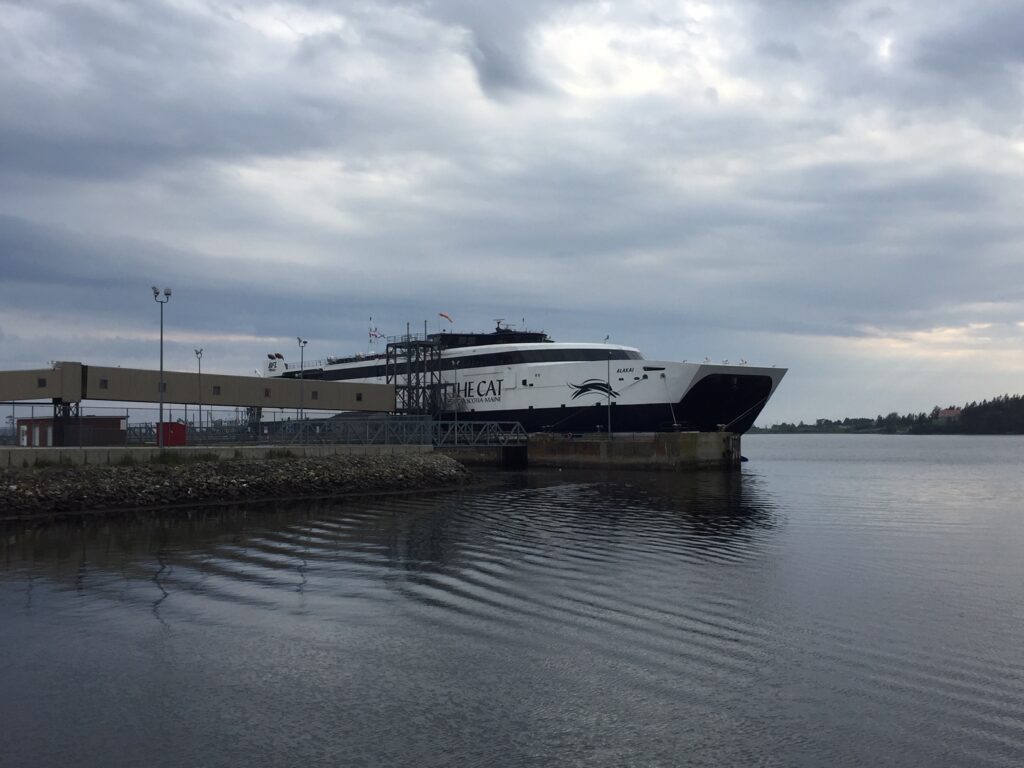
While the ferry between Yarmouth and Main sits idle for another year thanks to the pandemic, new details have finally come to light regarding the amounts that the Nova Scotia provincial government has been paying Bay Ferries to operate the service. The provincial PC opposition has been pushing the McNeil government for several years to disclose the exact amounts involved in the management fee paid by the province, a demand that both the government and Bay Ferries claimed would risk damage to the company’s competitive position by revealing commercially sensitive information. The matter was ultimately decided by the Nova Scotia Supreme Court, whose ruling in February made clear that these arguments didn’t hold water.
Roughly a week after the court ruling, Bay Ferries put any questions of potential appeals to bed by releasing the information to the public. According to the newly released information, the deal signed in 2018 sees Bay Ferries paid $97,500 a month, for a total of $1.17 million per year. This was adjusted upward from the original 2016 agreement, which only saw payments of $65,000 a month. The agreement also includes incentives that would allow the company to earn up to double the management fee in a given year based on the achievement of certain performance grades, though this has not yet happened. According to the release from Bay Ferries, the total management fee accounts for approximately 5% of all ferry operating costs in a typical year.
DIGBY FERRY ENDING A TWO-MONTH HIATUS
The ferry that normally runs between Digby and Saint John has been out of service since late January, forcing commercial truckers that form the backbone of Bay Ferries’ traffic at this time of year to take the long way round. MV Fundy Rose has been tied up in Halifax awaiting completion of terminal infrastructure upgrades. While it is not unusual for the service to be suspended while the vessel undergoes periodic refits, this is an exceptionally long outage period. A Bay Ferries spokesperson noted that passenger ridership had been exceptionally low due to COVID-19 restrictions, but the absence of service was challenging for commercial users. The Fundy Rose is now slated to resume operation with a 1600 departure from Digby on March 14.
CAMPOBELLO FERRY EXTENDED ONCE AGAIN
The Campobello ferry has been given yet another reprieve. The New Brunswick government announced on March 4 that the normally seasonal operation will continue until at least April 5, allowing residents to access to the rest of the province without having to travel through the US amid the pandemic.
Saint Croix MLA Kathy Bockus welcomed the announcement, but added she’d feel even better if the announcement was for a full-time ferry – a goal she indicated was still being worked on. The tug-and-barge ferry currently on the route is clearly unsuited for winter operating conditions, as evidenced by the large number of cancellations on the four days it is currently scheduled to operate each week.
